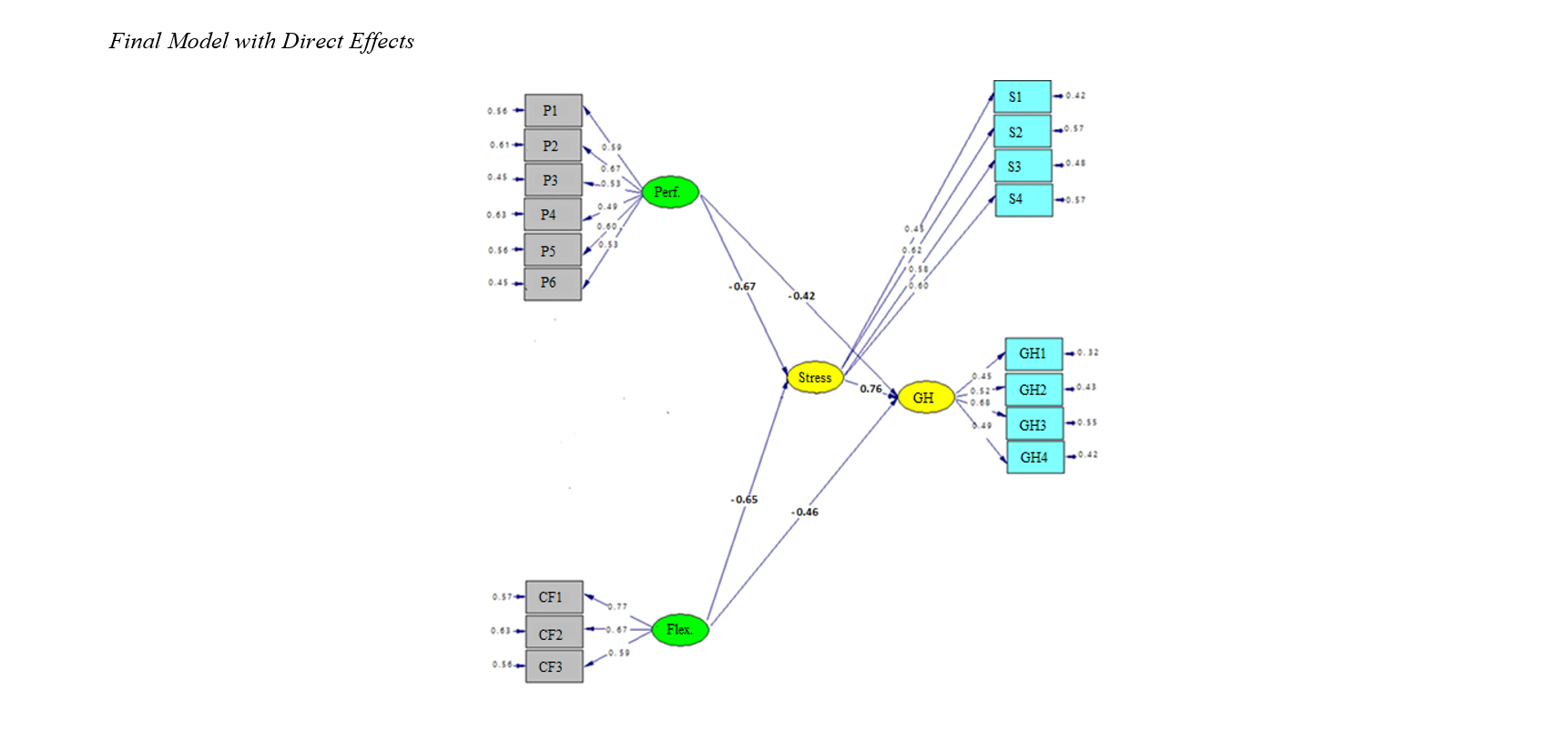Modeling the general health of Iranian immigrants based on cognitive flexibility and perfectionism with the mediation of acculturation stress
Keywords:
Salud general de inmigrantes iraníes, flexibilidad cognitiva, perfeccionismo, estrés de aculturaciónAbstract
Background and purpose: Migration is a dual factor that creates a stressful environment and requires the creation of new adaptations, creating psychological pressures. The present study was conducted with the aim of determining the fit of the proposed model of general health of Iranian immigrants based on cognitive flexibility and perfectionism with the mediation of acculturation stress. Research method: The method of this study was correlation type. The statistical population of this study included all Iranian immigrants who lived legally in one of the countries of Western Europe, North America or Oceania for more than one year. 224 people were selected using available sampling method. Data collection was done by publishing Goldberg General Health Questionnaire (1972), Dennis and Vanderwaal Cognitive Flexibility Questionnaire (2010), Hill et al. Findings: The results showed that cognitive flexibility has a negative effect on the general health of immigrants (β=-0.46, P=0.001). Perfectionism has a negative effect on the general health of immigrants (β=-0.42, P=0.001). Acculturation stress has a positive effect on the general health of immigrants (β=0.76, P=0.001). Conclusion: The evaluation of the proposed model with the method of path analysis showed that the proposed model of general health of Iranian immigrants based on cognitive flexibility and perfectionism with the mediation of acculturation stress is suitable; As a result, cultivating cognitive flexibility and positive perfectionism helps to reduce acculturation stress and maintain mental health in immigrants.
Downloads

Downloads
Additional Files
Published
Submitted
Revised
Accepted
Issue
Section
License

This work is licensed under a Creative Commons Attribution-NonCommercial 4.0 International License.








